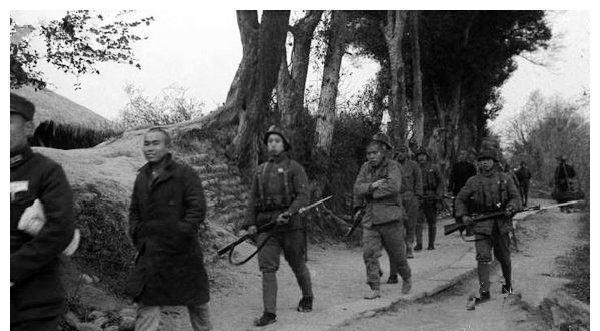
The famous Chinese writer Zhang Hexhui once wrote the only documentary novel in his life, "Long Live the Tiger", which is about the heroic deeds of the 58th Division of the 74th Army in 1943 in the Battle of Changde. Changde was originally in the rear of the War of Resistance. However, since the fall of Wuhan in October 1938, the changde to Changsha line has been exposed to the Japanese army. The picture shows Japanese prisoners of war.
By 1943, the general environment had gone by the three Axis powers. In addition to the fall of Mussolini in Italy and the complete rout of the German army in the Soviet-German battlefield, Japan, which was hostile on all sides, also suffered repeated defeats in the Pacific Theater, and its navy and air force were almost devastated by the US military.
Out of consideration for the overall situation of the war, the Japanese base camp strictly ordered the Japanese army to stop the large-scale offensive in the Chinese battlefield. Taking advantage of this opportunity, the Chinese side immediately drew troops from the Sixth Theater and the Ninth Theater of Operations to prepare to send troops into Burma again in order to open up the Allied route to aid China - the Sino-Indian Highway.
In order to contain the surrender of troops from the Central Committee to the Burmese battlefield, the Japanese base camp made a combat order to send troops to attack Changde according to the development of the current situation. Thus, the Battle of Changde broke out. The picture shows Japanese prisoners of war, some of whom are still murderous.
At the beginning of November 1943, the five divisions of the Japanese army attacked in all directions, attacking the city and pulling down the wall all the way, killing Changde. By November 15, the Japanese had advanced to the outskirts of Changde. At this time, Yu Chengwanbu, commander of the 58th Division of the 74th Army, who was tasked with defending the city of Changde. The picture shows Japanese prisoners of war smoking.
After six days of fierce peripheral warfare, the Japanese army successively used various means such as shelling, poison gas, and tear gas to finally break through Changde City. As a result, the two sides entered the stage of white-hot street battles.
By 1 December, the 58th Division, which had run out of ammunition, was still holding its last position. Late on the night of the 3rd, after many persuasions from his subordinates, Yu Chengwan, commander of the 58th Division, decided to break through. On the same day, the wind was fierce, and Yu Chengwan crossed the Yuan River under the cover of darkness to get in touch with reinforcements. Five days later, Chinese reinforcements re-entered Changde. On December 25, the Chinese regained all the lost territory and the Battle of Changde ended.
At the Battle of Changde, the Chinese side learned a lot of information from it. First, the aircraft cover of the Chinese side in this battle was significantly higher than that of the Japanese army. Second, due to the repeated dispatch of elite troops from China to fight in the Pacific Theater, the combat effectiveness and quality of its troops in China have decreased markedly, indicating that the Japanese army has become thinner and thinner, and victory in the War of Resistance is in sight.
Frustrated Japanese prisoners of war.
Japanese prisoners of war are being questioned.
Japanese prisoners of war are being questioned
Chinese officers holding a press conference.